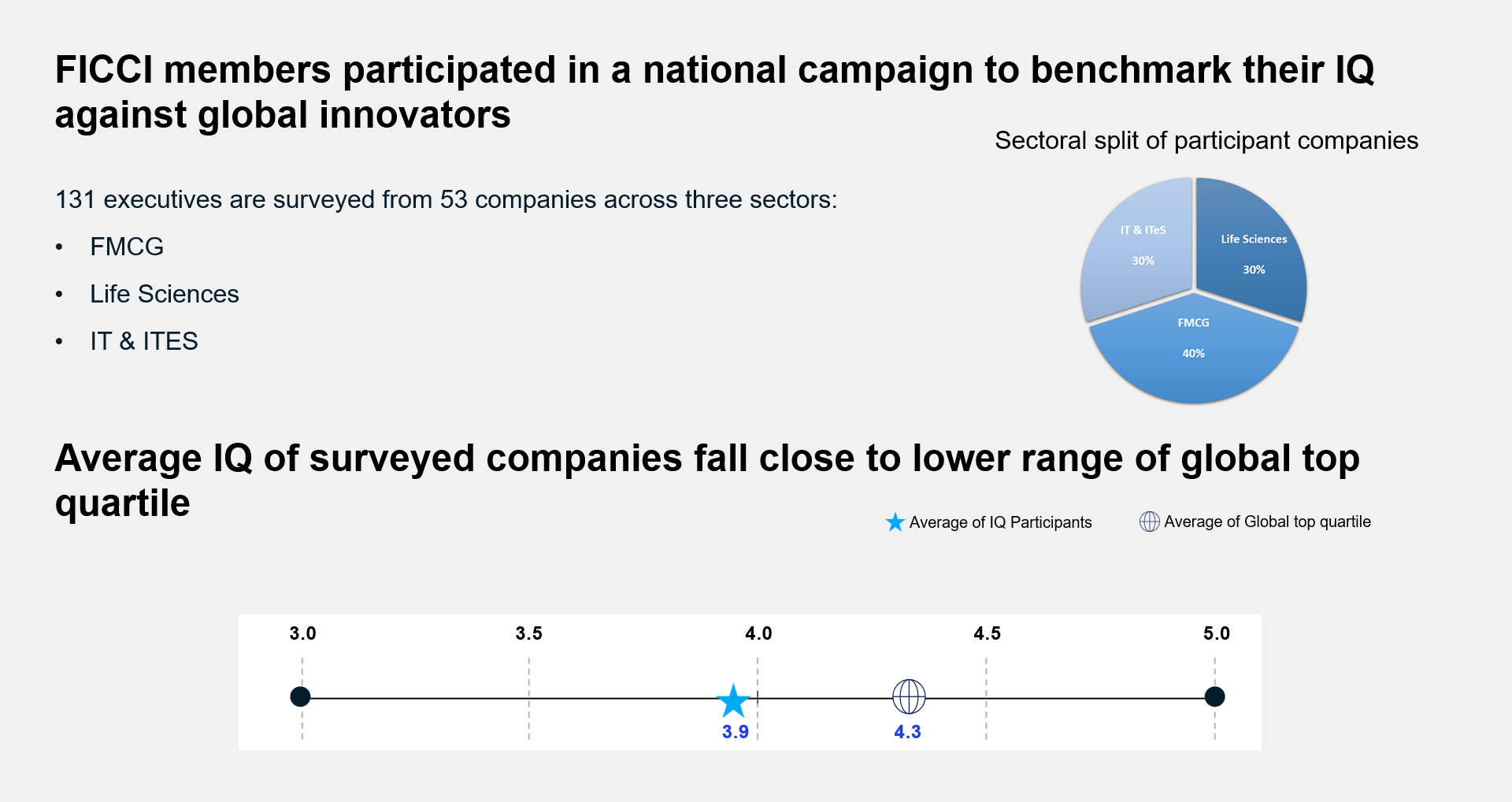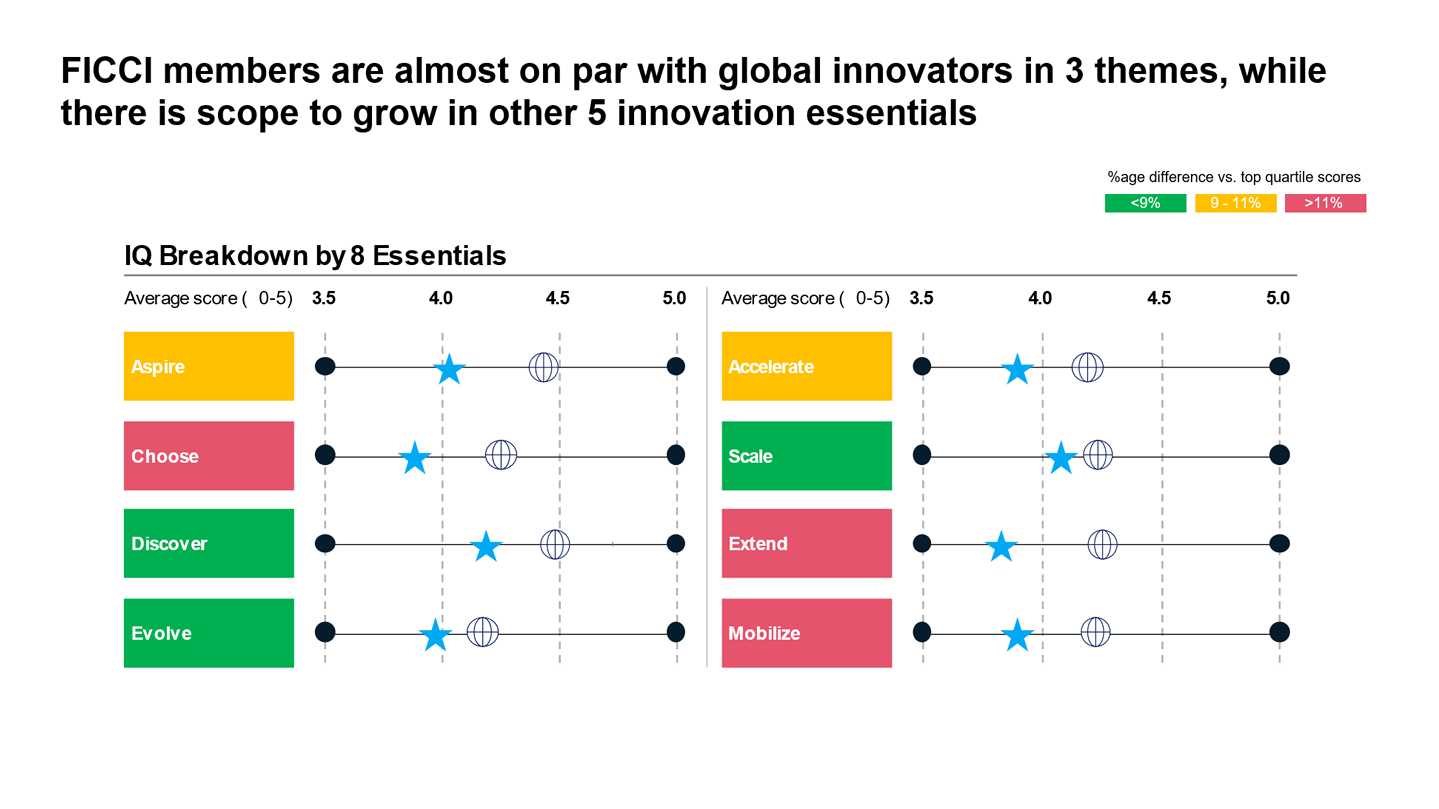

Do you accept innovation-led growth as critical, and o you have cascaded targets that reflect this? |
ChooseDo you invest in a coherent, time-risk balanced portfolio of initiatives that are resourced to win? |
AccelerateDo you beat the competition with fast and effective development and launch of innovations.? |
|
ScaleDo you launch innovations in the relevant markets and segments at the right magnitude? |
|
DiscoverDo you have actionable and differentiated business, market and technology insights that translate into winning value propositions? |
EvolveDo you create new business models that provide defensible, robust, and scalable profit sources? |
ExtendDo you win by creating and capitalizing on external networks? |
MobilizeAre your people motivated, rewarded, and organized to repeatedly innovate? |



The companies reported that they identify unmet customer needs with rapid market research and proactively recognize and rework failing business models in line with consumer behavior and technology trends.
For example, the CEO of a large FMCG said that their company sought customer insights and feedback at different stages of the innovation cycle.
The surveyed companies said that they rapidly launch new offerings in global markets by involving their marketing function in the development lifecycle and launching pilots (led by experienced managers) before full-scale rollouts.
The companies reported to have their internal ideation engines running robustly, with the leadership repeatedly emphasizing the need for new ideas and the communications teams continuously reinforcing the company's reputation for innovation.
For example, a reputed FMCG CEO said that their employees innovate with the confidence that their failures will only be viewed as milestones towards their journey to success.
The companies could institute time-bound, innovation-linked quantitative targets for innovation performance (e.g., net new revenues and earnings growth) for operating units. These targets could be complemented by increasing managerial accountability
For example, a global conglomerate with the reputation of being most innovative designed a benchmark margin target (30%) for all new product launches and links the BU managers bonuses to target accomplishment.
The companies could build innovation program management offices (e.g., a central innovation cell reporting to the CTO), staffed with various functional stakeholders (Finance, R&D, Marketing, etc.), to periodically review project progress and prevent decision-making ambiguity.
To de-risk new offerings and ensure market success, companies could adopt rapid testing protocols (e.g., A leading global shoe manufacturer emphasized on iterative experimentation for accelerated product rollout) , implemented by cross-functional squads charged with key features (e.g. packaging in FMCG). They could also build fail-safes into their final products (e.g., new feature toggles for software).
Companies could identify an optimal mix of different innovation priorities (e.g., 20% 'breakthrough IP’, 40% 'profit diversification', and 40% 'incremental product improvements’) and build their organizational structure around innovative product categories/themes (e.g., department for sustainability research). This could help ensure an optimal deployment of talent and resources across the innovation portfolio.
Building formalized systems to absorb ideas and utilizing the wider ecosystem of collaborators (e.g., suppliers, startups, academia) could help companies learn new ways of doing business and build innovation partnerships (e.g., new food varieties specialized for packaged products in FMCG/Agri).